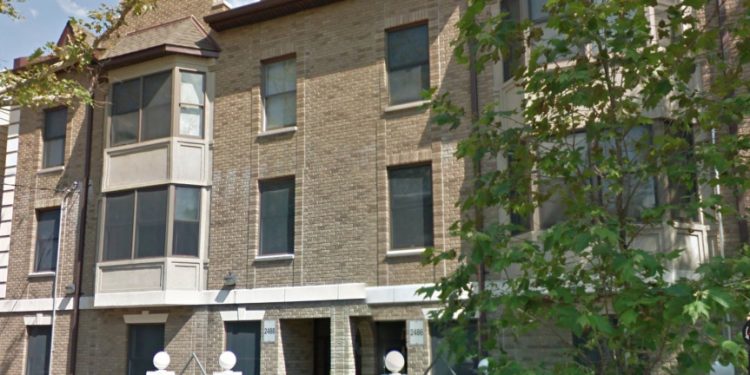A Public Safety alert sent on Thursday regarding an assault in an off-campus housing location drew criticism from many students, who, in response to a particular word choice, raised questions about insensitivity and issues of cultural and racial identity on both sides of Fordham’s gates.
The email in question described a reported incident inside a Fordham housing location at 2486 Arthur Avenue, where a student was assaulted by two individuals described as “two male blacks, one wearing a black hooded sweatshirt and black pants and the other wearing a red coat and red sweat pants.”
The two assailants reportedly fled in a black minivan following the incident.
After reading the alert, which was sent around 4 p.m., some students opted to directly email Fordham’s senior director of communications, Bob Howe, about the emails wording.
Students contested that dubbing the individuals as “blacks” was disparaging, if archaic.
Tochi Mgbenwelu, FCRH ’15, president of the Black Student Alliance at Rose Hill, was one of several students to email Howe.
“I find your choice of words, ‘male blacks,’ quite offensive,” she wrote to Howe. “The term ‘blacks’ has been used to degrade, vilify and dehumanize black people for centuries. Whilst I understand and completely agree that one’s race, amongst other details, should be a means of identifying them in such situations, choosing to define them as ‘blacks’ is archaic and distasteful.”
“You need to be aware of your privilege as a white male with authority on this campus,” Mgbenwelu continued, before suggesting, should there be a next time, that he “refer to them as either black or African American and not ‘blacks.’”
Anna Holt, FCRH ’17, a representative of United Student Government, was another student who raised an eyebrow at the use of the term. Before posting in a popular Facebook group for students, she wrote an email to Howe in which she called the wording “problematic.”
“Being a USG representative, I am familiar with your policy on when and when not to include race in a security alert,” Holt wrote. “That being said, I find the wording here problematic. I urge you to be more racially sensitive in your alerts moving forward.”
“I decided to reach out because, clearly, the security office does not understand the gravity of their words or the role they play in perpetuating racism within our community and beyond it,” Holt told The Fordham Ram. “It is astounding to me that any sort of authority figure would need to be reminded twice [about racial sensitivity].”
A handful of other students, in the comment below Holt’s post and on Twitter, also said they had responded to the email’s sender expressing discontent with the email’s vocabulary.
To address the complaints, Howe sent an email regarding the remark made in the email.
“Please accept my heartfelt apologies for the loaded description (“male blacks”) of the assailants I used in the Feb. 26 Public Safety alert,” Howe wrote.
Though it was signed by John Carroll, associate vice president and director of Public Safety, Howe was the one who drafted the alert (which students may have learned when he sent it as a Google Document to the university a few minutes prior, presumably by accident).
Noting that students expressed concerns through private messages to him, Howe said he understood the “historical weight that certain phrases carry.” He apologized for causing any members of the community “distress” due to his “poor choice of words.”
Gwenyth Jackaway, a communication and media studies professor who teaches classes on the intersection of the media and society, said she, too, was startled by the language in the email, but added that she was particularly impressed that some students were quick to respond.
“It sounds like it was organic, and a symptom of a growing sensitivity in our society,” Jackaway said, adding that, in light of recent events in Ferguson, Mo. and Staten Island, the public is keener than ever to hold the authority organizations accountable for their choice of language.
Race, as Howe said in the email and as the university has said in the past, plays a significant role in identifying victims and perpetrators in crime reporting. It is required by the Clery Act — a federal statute regarding campus security and campus crime statistics — that race, if provided by the person who reported the incident, must be included in security alerts in order to inform community members if a perpetrator is still at large.
A Public Safety alert on Feb. 7, for example, identified a suspect as “a male assailant on Fordham Road,” because other descriptions, such as race, presumably were not given to Public Safety in the incident report. An alert around the same time identified assailants as “a group of teenage males.”
One of the last emails to identify race was sent in August 2014, which identified one of several perpetrators as a “dark-skinned male, 6’ 1” with a medium build, wearing a dark blue hooded sweatshirt and sunglasses.”
Echoing the sentiments of many student reactions, Jackaway suggested that administrators have significant influence over how Fordham students use language to identify other members of the community.
“Language can often re-enforce stereotypes,” Jackaway said, “but the Security Offices have an opportunity to make a difference in the way they use language to create a more culturally inclusive environment.”
She suggested, as a solution, that Public Safety disclose that race was not provided by the student who reported the incident.





